Welcome back to the Stairway to Wisdom!
There was no newsletter last week, but there should have been.
It was a weird week for both my business and me personally, but I let work get away from me, and...well, yea. I don't feel great about it.
I should also quickly mention that I have to take a short time off for my hernia surgery in August, but I'll let you know ahead of time so you know when to expect the next edition of the newsletter.
That won't be for a few weeks though, and today we've got a packed newsletter as always!
For one thing, we've got the latest book breakdown, Excellent Advice for Living, by Kevin Kelly. It's a book of 450 optimistic, wise, and practical aphorisms that you can read in just a few hours but could keep you busy for a lifetime.
In this issue of the newsletter, we've also got a profile on Japanese novelist Haruki Murakami, three books on choosing your own path, wisdom from an incredibly thoughtful book about mental toughness and doing hard things, and more!
So let's get started!
Latest Release: Excellent Advice for Living
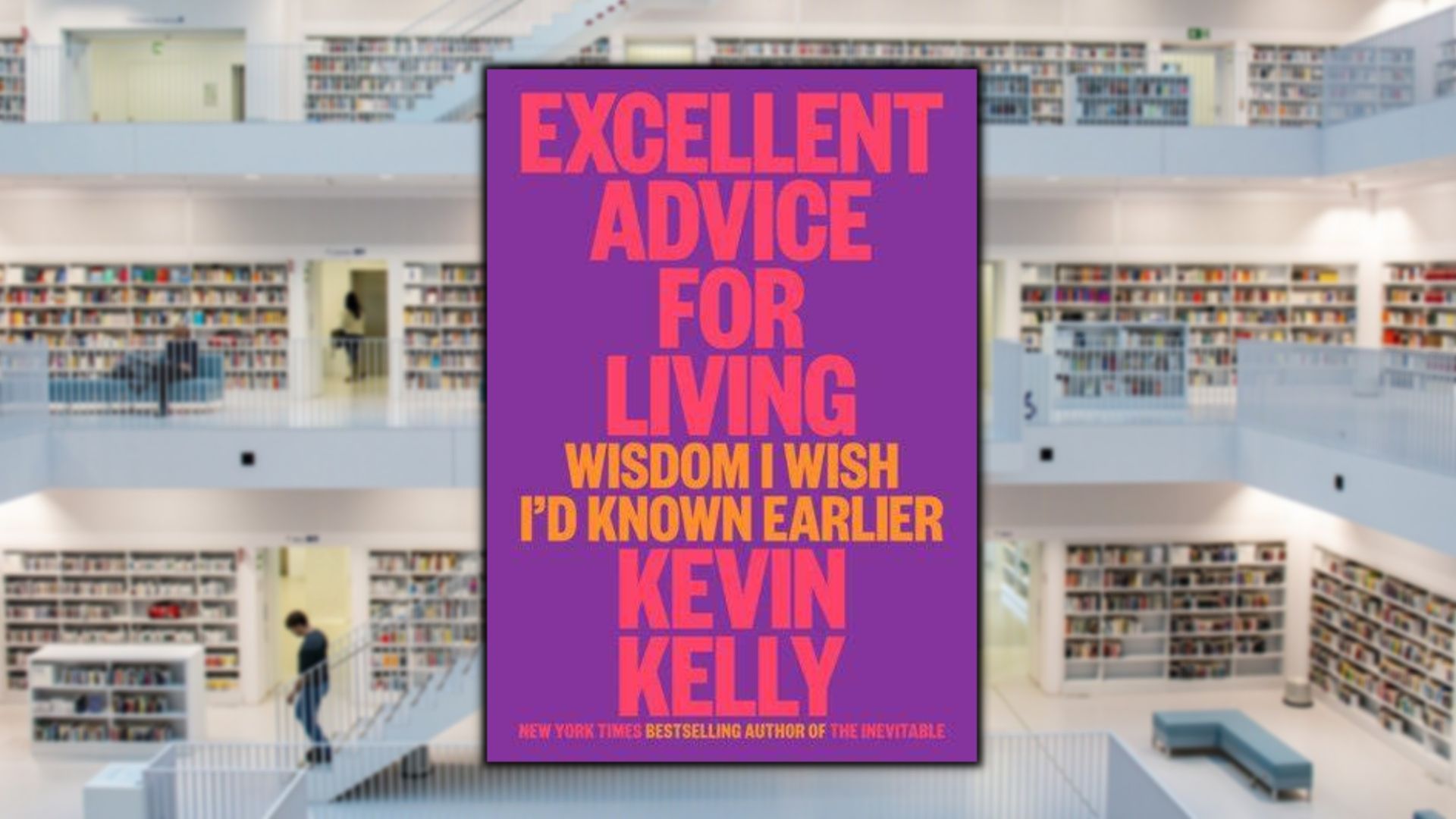
"On my sixty-eighth birthday, I decided to give my young adult children some advice. I am not a frequent advice giver but soon I was able to write down 68 bits. To my surprise, I had more to say than I thought.
So for the next several years I wrote down a batch of advice on my birthday and shared it with my family and friends. They wanted more. I kept going until I had about 450 bits of advice I wished I'd known when I was younger.
I am primarily channeling the wisdom of the ages. I am offering advice I have heard from others, or timeless knowledge repeated from the past, or a modern aphorism that matched my own experience. I doubted any of it is truly original, although I have tried to put everything in my own words.
I think of these bits as seeds because each one of them could easily be expanded into a long essay. Indeed, I have spent most of my time writing by compressing these substantial lessons into as compact and tweetable forms as possible. You are encouraged to expand these seeds as you read to fill your own situation.
If you find these proverbs align with your experience, share them with someone younger than yourself."
-Kevin Kelly
Just because you're old doesn't mean that you automatically have much valuable wisdom to share. Some people haven't really lived 10,000 days, they've just lived the same day 10,000 times. Kevin Kelly, however, is an exception, and it turns out that the brilliant and insightful tech innovator gives excellent life advice.
For anyone hearing about Kelly for the first time, he is the co-founder of Wired magazine and a highly-praised futurist and author whose optimistic outlook on the next chapter of human history has inspired a generation to think bigger and to advance confidently into the next stage of human evolution.
As Kelly says in the quote that began this summary, the life advice presented in this book was originally intended for his young adult children to help them navigate the hazardous future we all find ourselves hurtling towards. But the very act of writing them down caused him to realize that he had much more to offer than he thought he did when he began, which resulted in him eventually compiling this wonderful collection of 450 wise, practical, and incredibly valuable aphorisms.
The range of subjects they cover is as wide and deep as life itself, and so you'll find here advice about setting ambitious goals, cultivating peace of mind and equanimity, dealing with loss, organizing your life around adventure and spontaneity, dispelling anger and sadness, minimizing regret, and so much more.
Now, in a book with hundreds and hundreds of wise, practical aphorisms, my choices about which ones to expand on and which ones to ignore likely say more about me than they do about whether they're the "best" aphorisms or the "most useful" ones.
As you read the book and filter this life advice through your particular worldview, situation, and understanding, you're probably going to disagree with at least a few of them, or find them irrelevant or silly, etc. But which ones those are will change depending on who you are. That's part of what makes books so magical!
That being said, if it's true that your quality of life is roughly equal to the quality of the 20-30 people who give you the best advice, then you'd be wise to include Kevin Kelly in that group.
--> Read the rest at the Stairway to Wisdom!
Inside the Mind: Haruki Murakami

Inside the Mind is where we take you deeper into the life and thought of a major literary figure, someone who has had an extraordinary impact on our collective knowledge and wisdom.
Today I'm featuring Haruki Murakami (1949-Hopefully a Long Time From Now), one of our greatest living writers, and a perennial contender for the Nobel Prize in Literature.
People have said that his writing is "easily accessible, yet profoundly complex," and that's certainly true. You don't have to go looking up too many unfamiliar words in a Murakami novel. But they always take you somewhere - to familiar places full of unfamiliar characters and situations. If you've read any of his books you'll know exactly what I mean.
The fictional genre he writes in is what many would call magical realism, with otherwise straightforward stories about a 15-year-old boy running away from home mixed in with an interconnected narrative about an older, disabled man who's able to talk with cats. That's Kafka on the Shore. Or a long novel about an otherwise recognizable world where suddenly there are two moons. That's 1Q84, one of my favorites.
Murakami himself is pretty damn interesting too! For one thing, for seven years he used to own a jazz bar with his wife called Peter Cat, and one day while watching a baseball game he just suddenly decided to become a writer. That was before selling millions of copies of his books in 50 languages and winning a bunch of international writing awards.
He's also a marathon runner, and his nonfiction book, What I Talk About When I Talk About Running is one of the better books out there about the craft of writing. I started with Kafka on the Shore, but I hear fantastic things about his book, Norwegian Wood!
A Few Quotes from Haruki Murakami:
“If you only read the books that everyone else is reading, you can only think what everyone else is thinking.”
“Memories warm you up from the inside. But they also tear you apart.”
“Whatever it is you're seeking won't come in the form you're expecting.”
Start with This Book: Norwegian Wood, by Haruki Murakami
Another Good Place to Start: Kafka on the Shore, by Haruki Murakami
Wisdom in Action: The Science of Real Toughness
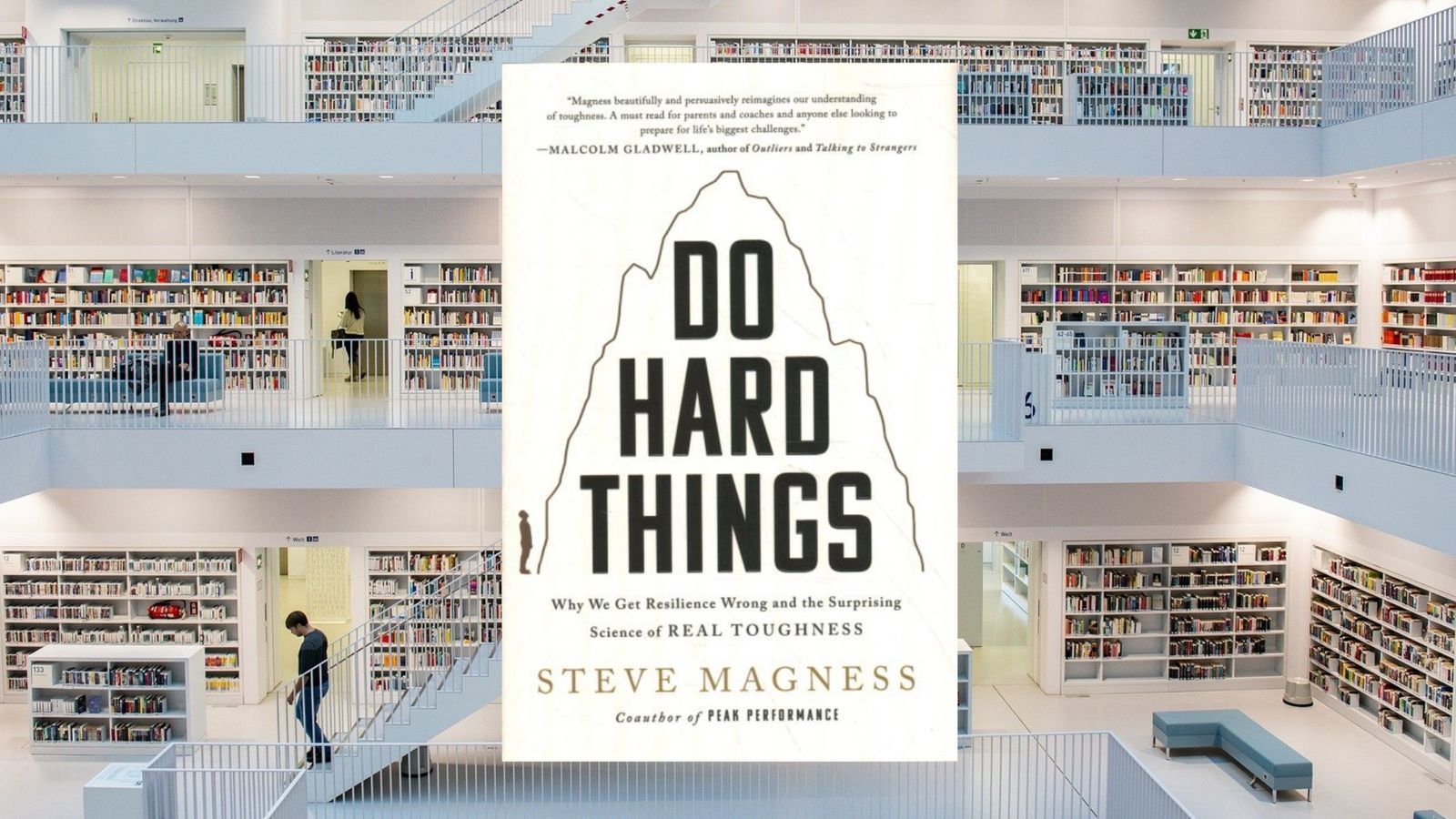
You'll notice that every book summary in the Stairway to Wisdom comes with Action Steps. That's because when you really want to bring about changes in your life, knowledge is not enough.
After learning and knowing, you must do.
We want every one of our readers to see and feel their lives changing for the better, immediately and over time.
So in this section, we've taken the first two Action Steps from Do Hard Things, an incredibly thoughtful book about the science of real toughness, and put them right in front of you so that you can take action today:
#1: Tune In at Least Once a Day
Your body is sending you messages all the time about what to approach, what to avoid, what to fear, and what to stand up to.
How often - and how attentively - we listen for and receive these messages can be the difference between success and failure, between a life of "staying down" and a life of getting up again each time to fight again.
This first Action Step is about actively listening for these messages that your body is sending you, and using them to help you move forward when appropriate. Hardly anyone does this. But you can, and it could make all the difference.
So the next time you're feeling any kind of strong emotion like fear or excitement, pause for a few minutes (or seconds, if that's all the time you have before you need to act), and deeply consider the message your body is attempting to convey. Because your body is trying to help you, despite how it seems sometimes, and to be able to help you, you need to be listening in the first place.
Now, the message might not be important or even worth heeding! It's up to you whether to actively listen to it and change your behavior because of it, or let it go to mental voicemail and proceed with your original intention. This whole process gets easier over time, but it never gets any less important.
#2: Give Yourself Many Ways to Win and No Way to Lose
What I mean here is that life affords us many opportunities to gain several benefits from the same action and that oftentimes, those same opportunities come with very little downside. I can give you a few examples here.
For instance, learning to be a better writer is never going to be a bad idea. Same with learning how to sell and how to market, and it's even the same with different types of jobs.
Communication is so integral to everything we do as human beings, so learning how to do it better is never going to be a waste of time, regardless of whether you actually become a professional writer.
You could even practice salesmanship by becoming a door-to-door salesperson, and not only could that be quite lucrative, but you'd also be gaining all these other high-value skills at the same time.
Even if you get 100 doors slammed in your face in a row, it would still have been worth it because you're learning how to embrace and deal with rejection, how to structure an opening so it's less likely that you're going to have the door slammed in your face the next time, etc. So many ways to win, and virtually no downside.
Personally, I hate wasting my time, so there always has to be something else in it for me to be interested in something. People often wonder why I've worked so long at bars, but that's how I became such a fantastic listener! That's how I learned these essential problem-solving skills, how I learned to speak to women, how I learned to stand up for myself...and so much more! Working as a bouncer gave me so many ways to win, but most people were completely blind to that. All they saw was a paycheck (relatively small as it was) and decided it wasn't for them.
So regardless of what, specifically, you do, make sure that it's serving you in some way. And look for the hidden benefits of certain activities like public speaking or traveling! Set yourself up with multiple ways to win and no way to lose.
Read the Full Breakdown: Do Hard Things, by Steve Magness
From the World of Reading: New Book Alert
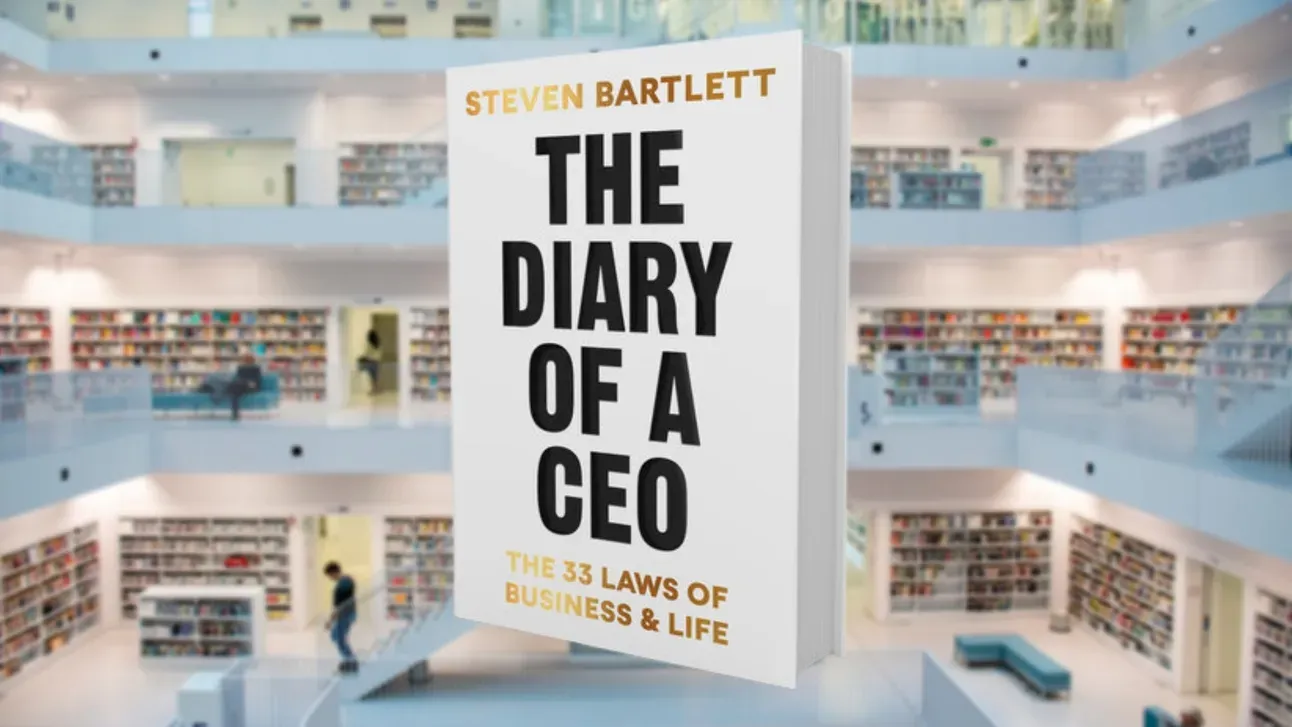
I’m one of the last people in the world to hear about Steven Bartlett’s incredible podcast (same name as the book), but now that I’m a regular listener, I am beyond excited for his book to come out.
We don’t have too long to wait, either - it’s coming on August 29th!
Here’s what Amazon has to say about it:
"From one of the world’s most exciting entrepreneurs and the host of the chart-topping podcast The Diary of a CEO, this is a galvanizing playbook about building great things that’s sure to be an instant classic.
Steven Bartlett has never been one to follow conventional rules. He’s achieved extraordinary success and emerged as one of the greatest marketing minds of our time by doing things differently. But there is a method to his maverick style.
Between founding and running a global digital marketing agency, investing in over forty companies, creating a hit podcast, and launching a venture fund for minority businesses, Bartlett has learned valuable lessons about success and failure, discovering a set of principles that he uses to guide him on his journey from strength to strength.
In The Diary of a CEO, he presents these thirty-three fundamental laws for the first time. Inspired by his own experience, rooted in psychology and behavioral science, and drawn from the conversations he’s had on his podcast with the world’s most successful entrepreneurs, entertainers, artists, writers, and athletes, these laws will ensure excellence and help you take real steps toward achieving your most daring goals.
From the power of “leaning into bizarre behavior” to learning to “out-fail the competition” to “never asking for consensus on creativity” to “making pressure your privilege” to understanding why “you must be an inconsistent leader,” Bartlett provides counterintuitive and fresh insights to lead you on the path to success.
These laws will stand the test of time and can be used by anyone who wants to master their life and unleash their potential, no matter the industry."
I'll be getting my hands on a copy of this one for sure, and I expect it'll be a pretty popular launch when August rolls around!
Further Reading: The Diary of a CEO
Learn This Concept: Meta-Learning

"Meta-learning (learning how to learn) should be the skill that precedes all others. Knowing the principles and strategies of effective learning will maximize the time and energy we put into anything else, as well as optimize our work in improving and mastering our chosen craft."
-Nick Velasquez, Learn, Improve, Master
Learning how to learn is literally what makes all other learning possible. As they say, if you have 60 minutes to chop down a tree, you should spend the first 55 minutes sharpening your axe, and that's what meta-learning is all about.
There aren't too many better books to introduce you to the principles behind successful learning than Make It Stick, so I highly suggest checking out my complete breakdown of that book here. It will demystify learning, as well as dispel many of the myths and falsehoods surrounding effective study habits.
Learning how to learn is probably the 1% of things you can study that's going to lead to 99% of your results, an extreme version of the Pareto Principle we spoke about in this breakdown. Knowing how to learn in the first place is going to put you ahead of so many of your competitors.
Not only that, but you'll be able to make even more progress, faster, and eventually you'll be so far ahead that no one who doesn't apply the principles of successful learning will ever be able to catch up to you.
Further Reading: Learn, Improve, Master, by Nick Velasquez
Three Books: How to Choose Your Own Path

There is a book for every problem you could ever face. Whatever it is that you're dealing with, someone else has also gone through something similar, come out stronger on the other side, and written about it in a book.
With that in mind, here are three books that can show you how to go your own way and follow a life path that will fulfill you in ways that following someone else's never could:
Hell Yeah or No, by Derek Sivers:
"When life or a plan feels ultimately unsatisfying, I find it's because I've forgotten to find the intersection of all three: what makes me happy, what's smart, and what's useful to others."
This Book Breakdown contains 7 Key Ideas, 4 Action Steps, and 25 Book Notes. Read It Here.
Put Your Ass Where Your Heart Wants to Be, by Steven Pressfield:
“When we say, ‘Put your ass where your heart wants to be,’ we mean station your physical body in the spot where your dream-work will and must happen. Want to write? Sit down at the keyboard. Wanna paint? Step up before the easel. Dance? Get your butt into the rehearsal studio. Dumb and obvious as it sounds, tremendous power lies in this simple physical action.”
This Book Breakdown contains 6 Key Ideas, 5 Action Steps, and 10 Book Notes. Read It Here.
The Pathless Path, by Paul Millerd:
"I want to see people live the lives they are capable of, not just the ones they think they are allowed to live."
This Book Breakdown contains 5 Key Ideas, 10 Action Steps, and 28 Book Notes. Read It Here.
Upgrade Your Reading: 38 Expert Reading Tips
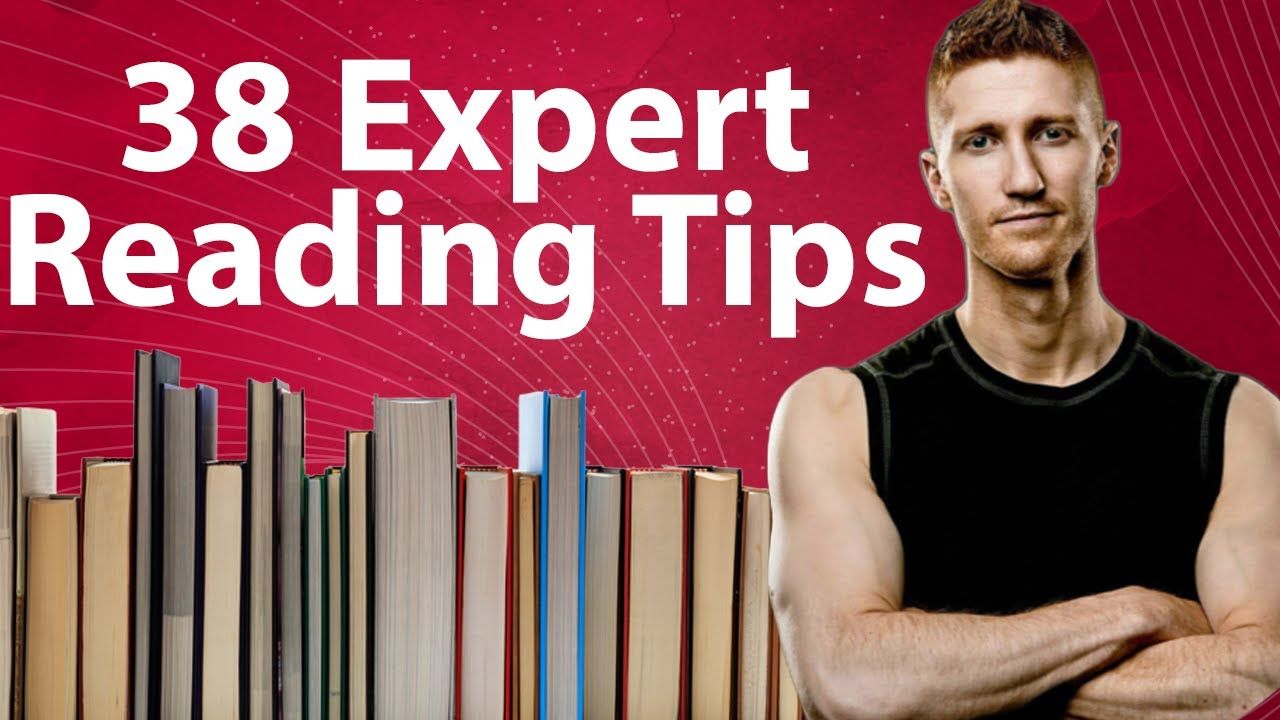
I've taught thousands of people how to read more books and get the absolute most out of the books they do end up reading, and I've noticed the same 7 problems keep coming up again and again.
In this video, I address all 7 problems and give a total of 38 expert solutions that will help you solve them once and for all. Hope this helps!
Further Viewing: Matt Karamazov on YouTube
Study Notes: The Practice, by Seth Godin

Seth Godin has been telling people to “leap” for years; to be “remarkable,” and to go “make a ruckus,” and so I kinda thought that this book would be more of the same. Now, I love Seth Godin, but I don’t know what I expected. This book exceeded whatever expectations I had though!
Yes, there’s the same general “core” message of the importance of starting, of standing up and going for it instead of waiting to be picked, etc., but there are a ton of other cool insights here as well.
The Practice is still certainly a “beginner” book, but really, masters are just those who have mastered the fundamentals, so I’m definitely glad I read it and I’m happy for all the reminders, on top of the things that I was reading for the first time.
I’ll admit something too: It felt kinda good to be the “professional” that he was talking about! For years I’ve been doing the things that he’s been suggesting that others do, and you know what? It got me somewhere. I’m moving along the path to mastery, achievement, and consummate professionalism, and a good deal of the reason for that was that I read a bunch of books like Godin’s.
“The Practice” is something that you get up and do every day, because you’re committed to forward progress, and because you want to see how good you can become. I committed to that never-ending process years ago, and, while I’m nowhere near where I want to be, I’m a lot further ahead than I would have been without Godin and his books.
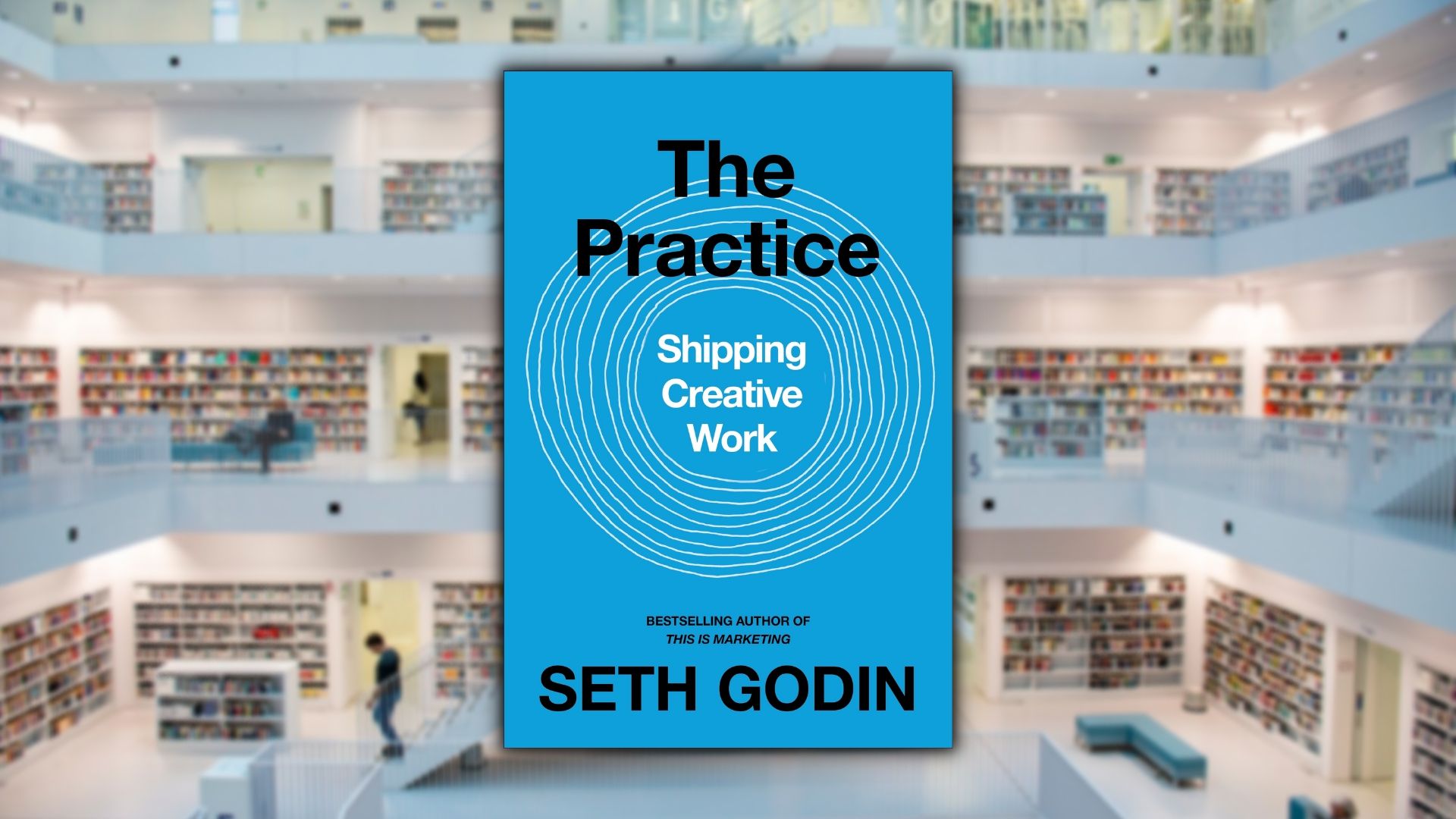
A SAMPLE OF MY BOOK NOTES FROM THE PRACTICE:
“The renewal of societies and organizations can go forward only if someone cares.”
“Art is something we get to do for other people.”
“Your work is too important to be left to how you feel today.”
“Good needs to be defined before you begin. What’s it for and who’s it for? If it achieves its mission, then it’s good. If it doesn’t, then either you were unlucky, incorrect, or perhaps, what you created didn’t match what you set out to do. And yes, there’s a huge gap between ‘good’ and ‘as good as it could be.’ It’s likely we’ll never bridge that gap.”
“The only way to know that it’s an edge is to cross it.”
“Life is on the wire, the rest is just waiting.”
Further Reading: Matt Karamazov's Notes from 1,150+ Books
What's Next?

That's it for this week! Next week, I'll be back with more book breakdowns, inspiring thinkers, novel concepts, big ideas, reading tips, and more.
In the next issue, I will also be releasing the breakdown of On Truth, by Jiddu Krishnamurti, one of the most sane, inquisitive, humanistic teachers I've ever had the good fortune to encounter in all my years of reading.
Krishnamurti changed my life in many astonishing, important ways, and it's my hope that he does the same for you.
Also, if you have any bookish friends that you think would love the Stairway to Wisdom, you can click the button below and share it with them. I mean, what are friends for?
We covered a lot today, and again, thank you very much for joining the Stairway to Wisdom. The whole team is behind you! We all want you to win!
Until next time...and happy reading!
Matt Karamazov

